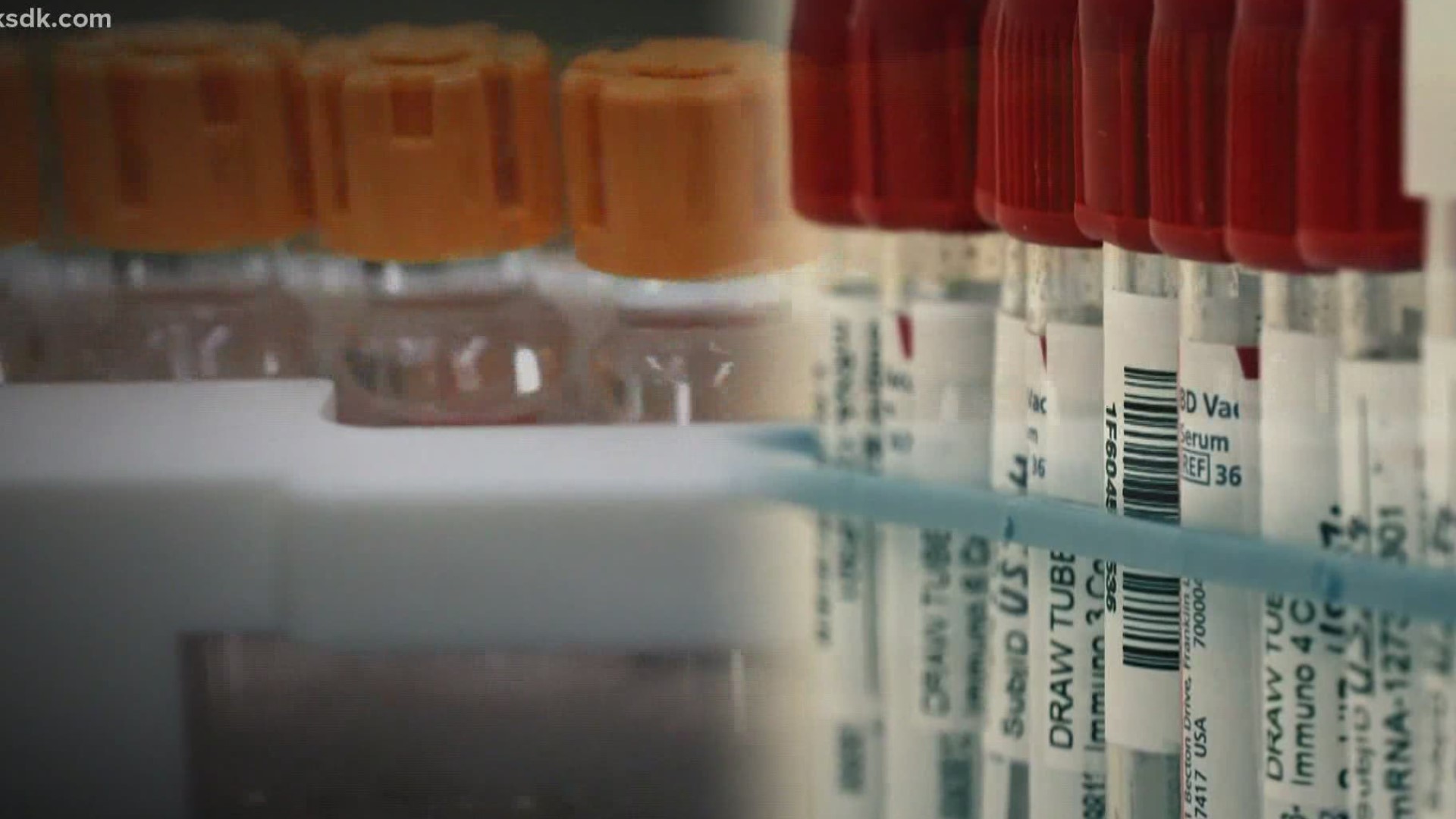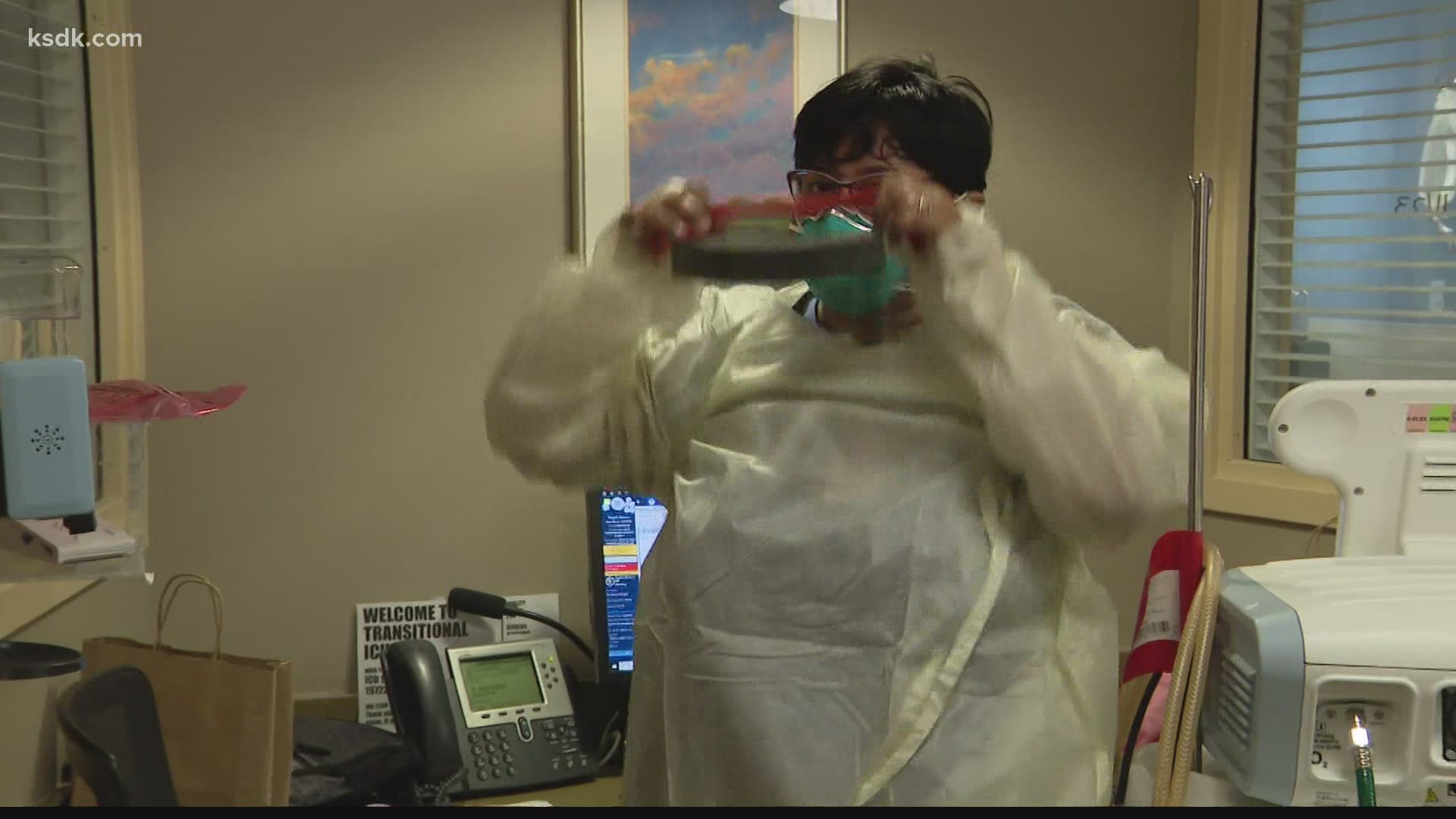“I don't think any of us in our wildest dreams really hoped that there would be a vaccine that was 95% protective by the end of the year,” said Dr. Rachel Presti, Associate Professor of Medicine in Infectious Disease. “And so that's really just truly amazing.”
Presti is one of the St. Louis doctors leading the charge in local vaccine trials that contribute to the positive vaccine news around the country: that a vaccine may be available for distribution within weeks.
Even with a vaccine providing an answer to getting “back to normal,” you may still have a lot of questions. We took some of the most common ones to some of the region's top vaccine experts.
You might still have a lot of questions. Like:
Q: Will this be a scheduled vaccine like for the measles, or a yearly shot like the flu?
A: It’s too early to tell — that’s why trial participants will be monitored for at least 2 years post-vaccination.
Dr. Sharon Frey is clinical director of SLU’s Center for Vaccine Development and principal investigator of the trial at SLU.
“Everyone's hope is, of course, two things,” said Dr. Frey. “One, that the immune response is durable. We don't know how long the immune response will even last. And the other hope is that we don't have to vaccinate everybody every year. But there's a very good chance of that happening. And I think we'll know that soon enough next year or the year after that.”
Q: How can we feel confident that there are no harmful long-term side effects?
A: Again, we can’t — it’s why the trial participants will be monitored. However, based on how the vaccines are developed and early side effects, it’s unlikely.
“It's pretty rare to see a vaccine complication that is months or years after the vaccine actually was given,” said Dr. Presti.
“The immediate side effects and side effects several months out after vaccination have looked to be acceptable,” said Dr. Frey.
Q: How will we know if it's safe for kids?
A: Future studies will be required.
“When that happens, we'll have that data to respond to make decisions on,” said Dr. Frey.
Q: How is this possible so quickly?
A: Simply put, a collective focus on one problem, plus tackling several steps of the vaccine-making process simultaneously (rather than in sequential order) means everything can move faster. Additionally, while companies often have little incentive to devote significant resources to vaccine development, the COVID-19 threat has changed that.
“It's pretty unusual to have this many really, really smart scientists all over the world working on the same problem at the same time,” said Dr. Presti. “I think that shows you what can be done if you've got a really pressing situation."
The widespread infection rate is also, in some ways, making the study a bit easier.
“It is true that when you have more cases out there, there's more exposure to COVID,” said Dr. Frey. “If they're participating in the vaccine trial, then the number of cases will go up, hopefully in the placebo group and not the vaccine group. And that's exactly what we have seen thus far.”
Q: Would you take the vaccine?
A: Both of the scientists said: yes, they would get a vaccine when available, and want their loved ones to, as well.
More participants are needed in ongoing COVID vaccine trials, since several will be needed to fight the pandemic. The universities say if you are interested in enrolling, you should sign up on their websites: the Washington University Division of Infectious Diseases clinical trials site and Saint Louis University’s Center for Vaccine Development.
If you have questions about the vaccine, email the reporter at allorico@ksdk.com and we will work to get them answered.


